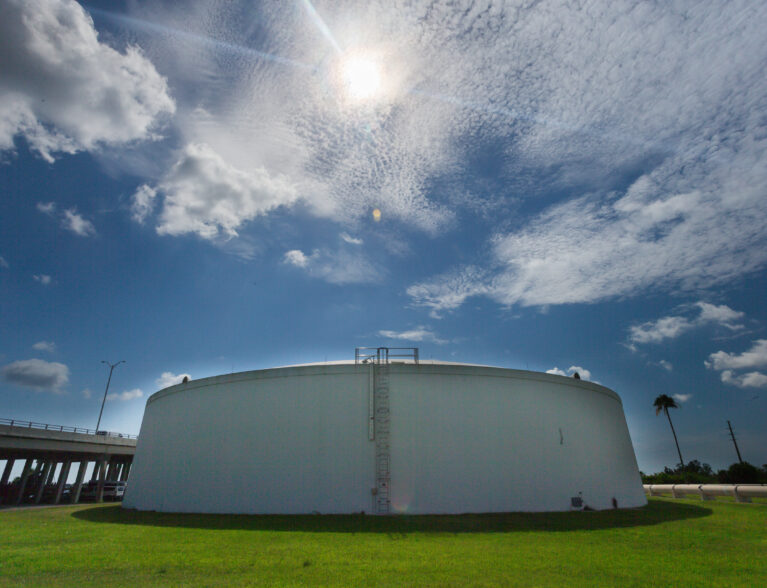
Remember how just a year ago, the number being tossed about for building a new Vero sewer plant at the airport was $82 million?
Well, the September Shock for Vero Beach water and sewer ratepayers is that over the next 30 years, the total cost of moving Vero’s sewer operations off the Indian River Lagoon is going to be more like a quarter of a billion dollars.
That’s right. Billion with a “B.”
Documents obtained from the city, confirmed by city staff, show that the state-of-the-art wastewater treatment facility that the city is now calling its “One Water Campus” is expected to cost approximately $132 million to design and construct.
Financing $132 million over 30 years could be expected to cost another $120 million, bringing the total bill for the new plant to $250 million.
Mayor John Cotugno blurted out the new cost estimates on Sept. 1 during a Vero Beach City Council candidate forum where he answered questions about the city’s pressing issues, along with challengers Honey Minuse and Taylor Dingle.
“There is no choice. The wastewater treatment plant has to move. It has to be moved because it’s past its useful life and it’s in a critical phase for potentially having a catastrophic failure,” Cotugno said, adding that the previous city council under Mayor Harry Howle began planning to move the sewer operations off the lagoon prior to the pandemic.
“Yes, the costs have grown. I think we’ve all admitted reality the past year, past five years that costs have skyrocketed. The costs of this project are now somewhere in the $130 million to $150 million range but it’s a necessity. It has to happen,” Cotugno said.
“Three Corners doesn’t happen unless the wastewater treatment plant moves, I don’t think I want to stay over at a five-star hotel that overlooks a wastewater treatment plant. Somehow, I don’t find that to be the most appealing thing ever,” Cotugno said. “They have to happen together.”
With the city admittedly over another proverbial negotiating barrel, Cotugno said the final price tag is “very much a moving target.”
Vero Water-Sewer Utilities Director Rob Bolton confirmed that the “$132 million plus” is simply the latest estimate for construction, plus some design and permitting services. The city hopes to bring in a general contractor later this fall to work with engineers to finish the design, then to bid the project out in the spring and begin construction next summer.
Eventually the city will have a not-to-exceed cost figure in hand, but that’s at least six months away.
Bolton said the city has applied for three grants totaling $40 million to help with costs of moving the sewer plant, and added that no changes to the planned utility rate structure approved in 2022 are on tap at this point for Oct. 1, which is the start of the city’s next fiscal year.
Meanwhile the Town of Indian River Shores continues litigating a breach of contract lawsuit against the City of Vero Beach over allegations that Vero has not honored its 2012 promise to charge Indian River Shores customers utility rates that match Indian River County Utilities’ published rates.
The matter has been through the circuit court, the Fourth District Court of Appeals, and is now awaiting word on whether the Florida Supreme Court will take up the case.
The Shores sued over a dispute arising about reuse irrigation water rates back in 2020, but since Vero also increased Shores’ customers’ water and sewer rates and Shores customers are paying higher rates for water and sewer than Indian River County published rates, town officials admit that they will likely need to initiate a second lawsuit over the water-sewer rates as well.
Shores Councilman Bob Auwaerter, who sits on the city’s Utilities Commission, said the new cost estimate has not come before the Utilities Commission, and that Cotugno’s statements at the candidate forum were news to him.
“The thing I’ve questioned is where are they gonna stop with this thing, and do they intend to go forward with it no matter how high the cost? Is there even a ceiling or a cap on how much they are willing to spend?” Auwaerter said.
South Beach residents who live in the unincorporated county are also among the ratepayers who will ultimately fund the entire cost – aside from what’s covered by grants – through their monthly utility bills.



